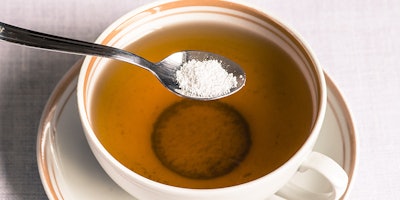
Swapping sugar for artificial sweeteners may not be as healthy as many thought.
A new look at past research on sweeteners such as aspartame, sucralose and stevia has linked the sweeteners to a higher risk for a range of health issues.
For the study, published in the Canadian medical Association Journal, researchers from the University of Manitoba’s George & Fay Yee Centre For Healthcare Innovation examined 37 studies that involved about 400,000 participants.
"From all that research, there was no consistent evidence of a long term benefit from the sweetener, but there was evidence for weight gain and increased risks of other cardiometabolic outcomes," lead author Meghan Azad, of the University of Manitoba in Winnipeg, Canada, said.
Artificial sweeteners activate receptors on a person’s tongue that tells them they’re tasting something sweet. Some of these synthetic sweeteners are known as “intense sweeteners” and can be thousands of times sweeter than real sugar.
All of the examined research for the study showed varying outcomes tied to using artificial sweeteners. But the longer-term research showed a slightly higher risk for weight gain, diabetes, high blood pressure and heart disease.
The researchers said the results are cause for caution “until the long-term health effects of artificial sweeteners are fully characterized.”
"Given the widespread and increasing use of artificial sweeteners, and the current epidemic of obesity and related diseases, more research is needed to determine the long-term risks and benefits of these products," Azad said.























